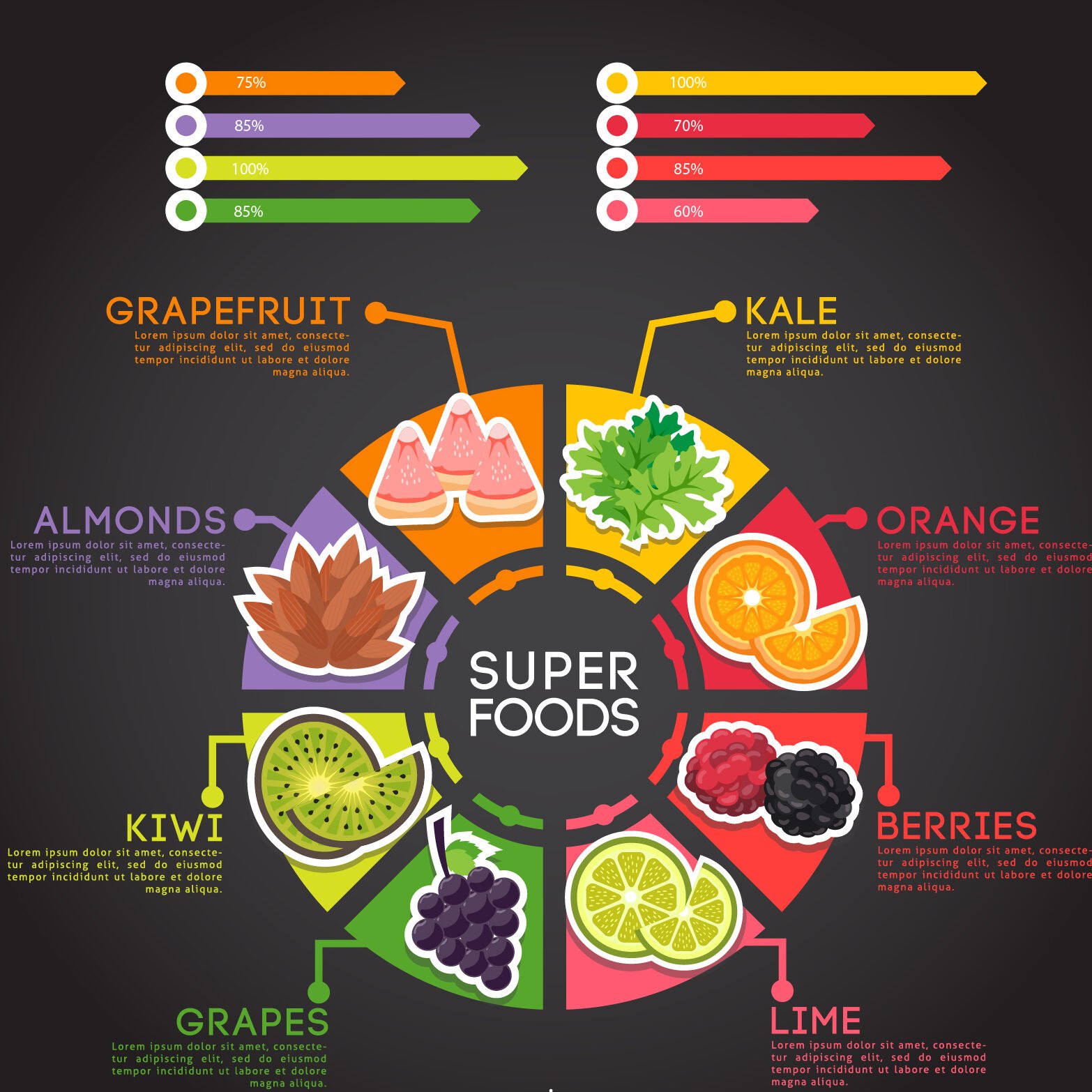The gut microbiome, also known as the gut flora, is a complex community of microorganisms that live in our digestive tract. This community consists of bacteria, fungi, viruses, and other microbes that play a crucial role in maintaining our overall health. Recent research has shown that the gut microbiome not only aids in digestion and absorption of nutrients but also plays a key role in regulating our immune system, metabolism, and even brain function. It is often referred to as our “second brain” due to its ability to communicate with the central nervous system through various pathways.

Balanced gut microbiome
Having a diverse and balanced gut microbiome is essential for good health. An imbalance or disruption in this community can lead to various health issues, such as digestive problems, autoimmune diseases, obesity, and even mental health disorders. One of the main factors that can affect the diversity and balance of our gut microbiome is our diet. Consuming a diet high in processed foods, sugar, and unhealthy fats can disrupt the delicate balance of good and bad bacteria in our gut. On the other hand, a diet rich in fiber, whole grains, fruits, and vegetables can promote a diverse and healthy gut microbiome
Lifestyle factors and medication
Other lifestyle factors such as stress levels, medication use, and exposure to environmental toxins can also impact the health and balance of our gut microbiome.To maintain a healthy gut microbiome, it is important to consume a varied and nutritious diet and manage stress levels.Strategies for maintaining or improving gut health, including dietary changes and probiotic supplementation
Introduction
The human gut is home to a diverse community of microorganisms, collectively known as the gut microbiota. These microorganisms play a crucial role in maintaining overall health and well-being by aiding in digestion, metabolism, and immune function. However, factors such as diet, stress, and medication can disrupt the balance of the gut microbiota, leading to various digestive issues and even chronic diseases.
Fortunately, several strategies can help maintain or improve gut health. In this article, we will discuss some dietary changes and probiotic supplementation methods that can promote a healthy gut.
Dietary Changes for Gut Health
Increase Fiber Intake
Fiber is essential for maintaining a healthy gut as it acts as food for the beneficial bacteria in our gut. A diet rich in fiber can help prevent constipation, promote regular bowel movements, and reduce the risk of developing conditions like diverticulitis and irritable bowel syndrome (IBS). Foods such as fruits, vegetables, whole grains, legumes, and nuts are excellent sources of fiber.
Limit Processed Foods
Processed foods are typically high in sugar, unhealthy fats, and preservatives that can disrupt the balance of bacteria in our gut. These imbalances can lead to inflammation and increase the risk of chronic diseases. Therefore, limiting processed foods and focusing on whole foods is crucial for maintaining a healthy gut.
Incorporate Fermented Foods
Fermented foods like yogurt, kefir, sauerkraut, and kimchi contain beneficial bacteria that can help improve the diversity of our gut microbiota. These probiotic-rich foods have been shown to support digestion, boost the immune system, and reduce inflammation in the gut.

Stay Hydrated
Drinking enough water is essential for maintaining a healthy digestive system. Water helps move waste through the intestines and prevents constipation. It also aids in the absorption of nutrients from food.
Probiotic Supplementation for Gut Health
Probiotics are live microorganisms that can provide health benefits when consumed in adequate amounts. They can be found in certain foods, such as yogurt and kefir, or taken as supplements. Here are some ways probiotic supplementation can improve gut health:
Balancing Gut Microbiota
Probiotic supplements contain specific strains of beneficial bacteria that can help restore balance to the gut microbiota. This is especially helpful after disruptions caused by antibiotics or illness.
Reducing Digestive Issues
Studies have shown that probiotics can be effective in reducing symptoms of digestive issues like diarrhea, constipation, and bloating. They may also help treat conditions like IBS and inflammatory bowel disease (IBD). Boosting Immune System
Healthy Gut Diet Chart
A healthy gut is essential for overall well-being. Our gut plays a significant role in our digestive system, immune function, and even our mental health. To maintain a healthy gut, it is crucial to follow a balanced diet that includes foods rich in probiotics, prebiotics, and fiber. In this chart, we have listed some of the best foods for a healthy gut, along with their calorie count and nutritional values.

- full, make a food chart with calories
Food
Calories
Nutritional Values (per serving)
Yogurt
150 calories
Probiotics, calcium, vitamin D
Kefir
110 calories
Probiotics, calcium, vitamin D
Sauerkraut
30 calories
Probiotics, fiber, vitamin C
Kimchi
40 calories
Probiotics, antioxidants, vitamins A and C
Kombucha
60 calories
Probiotics, B vitamins, antioxidants
Miso Soup
85 calories
Probiotics, antioxidants, vitamins K and B12
Bananas
105 calories
Prebiotic fiber, potassium, vitamin C
Asparagus
27 calories
Prebiotic fiber, folate, vitamins A and C
Garlic
Four calories per clove
Prebiotic inulin has anti-inflammatory properties
Onions
44 calories
Prebiotic inulin, antioxidants, vitamins B and C
Berries (raspberries, blueberries, strawberries)
60-85 calories per cup
Fiber, antioxidants, vitamin C
Oats
150 calories per cup
Prebiotic fiber, beta-glucan, vitamins B and E
Chia seeds
138 calories per ounce
Fiber, omega-3 fatty acids, antioxidants
Flaxseed
75 calories per tablespoon
Fiber, omega-3 fatty acids, lignans
Almonds
162 calories per ounce
Fiber, protein, monounsaturated fats
Dark chocolate (70% or higher cocoa content)
170 calories per ounce
